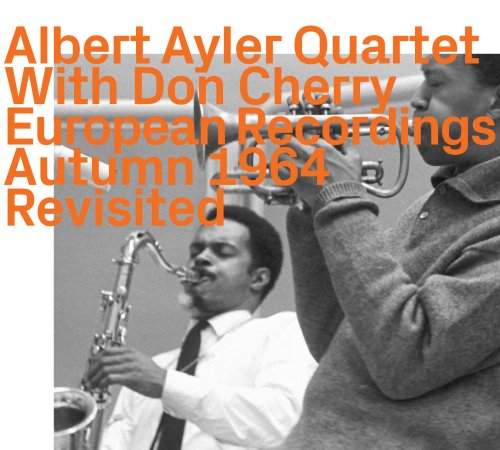Olli Mustonen - Scriabin: 12 Etudes, Op. 8 - 6 Preludes, Op. 13 - Piano Sonata No. 10 - Vers la flamme (2011) [DSD64]
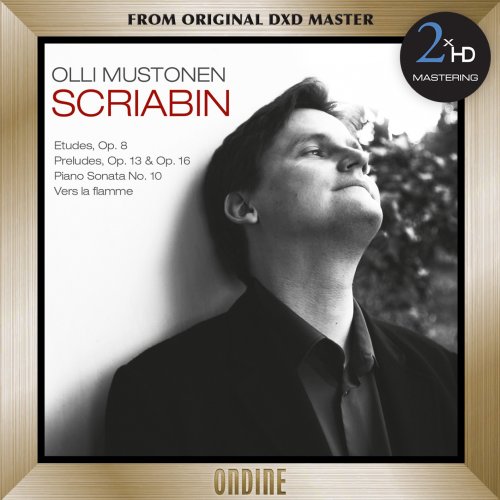
Artist: Olli Mustonen
Title: Scriabin: 12 Etudes, Op. 8 - 6 Preludes, Op. 13 - Piano Sonata No. 10 - Vers la flamme
Year Of Release: 2011
Label: 2xHD-Ondine
Genre: Classical
Quality: DSD64 2.0 (*.dsf)) (tracks) 2,8 MHz/1 Bit
Total Time: 1:07:05
Total Size: 2.66 GB
WebSite: Album Preview
Tracklist:Title: Scriabin: 12 Etudes, Op. 8 - 6 Preludes, Op. 13 - Piano Sonata No. 10 - Vers la flamme
Year Of Release: 2011
Label: 2xHD-Ondine
Genre: Classical
Quality: DSD64 2.0 (*.dsf)) (tracks) 2,8 MHz/1 Bit
Total Time: 1:07:05
Total Size: 2.66 GB
WebSite: Album Preview
01 - 12 Etudes, Op. 8: No. 1 in C-Sharp Major: Allegro (1:31)
02 - 12 Etudes, Op. 8: No. 2 in F-Sharp Minor: A capriccio, con forza (2:12)
03 - 12 Etudes, Op. 8: No. 3 in B Minor: Tempestoso (2:02)
04 - 12 Etudes, Op. 8: No. 4 in B Major: Piacevole (1:53)
05 - 12 Etudes, Op. 8: No. 5 in E Major: Brioso (2:19)
06 - 12 Etudes, Op. 8: No. 6 in A Major: Con grazia (1:38)
07 - 12 Etudes, Op. 8: No. 7 in B-Flat Minor: Presto tenebroso, agitato (2:06)
08 - 12 Etudes, Op. 8: No. 8 in A-Flat Major: Lento (3:31)
09 - 12 Etudes, Op. 8: No. 9 in G-Sharp Minor: Alla ballata (5:07)
10 - 12 Etudes, Op. 8: No. 10 in D-Flat Major: Allegro (1:59)
11 - 12 Etudes, Op. 8: No. 11 in B-Flat Minor: Andante cantabile (3:46)
12 - 12 Etudes, Op. 8: No. 12 in D-Sharp Minor: Patetico (2:36)
13 - 6 Preludes, Op. 13: No. 1 in C Major: Maestoso (2:26)
14 - 6 Preludes, Op. 13: No. 2 in A Minor: Allegro (0:49)
15 - 6 Preludes, Op. 13: No. 3 in G Major: Andante (1:25)
16 - 6 Preludes, Op. 13: No. 4 in E Minor: Allegro (1:10)
17 - 6 Preludes, Op. 13: No. 5 in D Major: Allegro (0:59)
18 - 6 Preludes, Op. 13: No. 6 in B Minor: Presto (1:24)
19 - 5 Preludes, Op. 16: No. 1 in B Major: Andante (2:38)
20 - 5 Preludes, Op. 16: No. 2 in G-Sharp Minor: Allegro (1:27)
21 - 5 Preludes, Op. 16: No. 3 in G-Flat Major: Andante cantabile (1:53)
22 - 5 Preludes, Op. 16: No. 4 in E-Flat Minor: Lento (0:58)
23 - 5 Preludes, Op. 16: No. 5 in F-Sharp Minor: Allegretto (0:39)
24 - Piano Sonata No. 10 in C Major, Op. 70 (12:34)
25 - Vers la flamme (Poème), Op. 72 (8:03)
Alexander Scriabin’s creative career described a brilliant but tragic trajectory. He began as a pianistic prodigy in an elaborated Chopinesque style, as exemplified by his early Piano Concerto, sonatas and etudes. But his development was prodigious, and by the start of the 20th century he was capitalising with truly Russian fervour on the influence of Wagner – and the imaginative stimulus of the grandiose esoteric beliefs he was developing from Nietzsche and Theosophy – to create a personal language heady and erotically voluptuous in its chromatic freedom, extravagant and flamboyant in its gestures. This new language reached its apotheosis in the orchestral Poème de l’extase and Promethée and the heaven-storming Fifth, aloofly hermetic Sixth, and triumphant Seventh (White Mass) Piano Sonatas.These latter works, however, already show a trend towards concision (they are all in one movement) and to allusive but logical development out of germinal motifs and chordal structures – characteristics which Scriabin continued to explore and refine in the ever more inward, mystically self-communing piano works of his last years. In Scriabin, virtuosity is innate in the musical ideas themselves: it is the medium of communication with the divine, the portal to Nirvana.
Reviews:
Gramophone
An extraordinary pianist for extraordinary music. This is Scriabin as you have never heard him before, played by one of music’s most formidable and compulsive free spirits. Had Igor Stravinsky lived to hear Mustonen, he might well have asked with added emphasis, ‘Scriabin, where does he come from, and who are his followers?’ The stress is very much on an original journey from the early Op 8 Etudes through the Op 13 and 16 Preludes to the obsessive circlings of the Sonata No 10 and the final conflagration of Vers la flamme. Yet, even in the Etudes, Mustonen’s acetylene technique dazzles and astounds, fragmenting a Frédéric Chopin-inspired lyricism into so many shards of glass. The music is made to leap flame-like and uncontained from the page and you could cut yourself on Mustonen’s glittering sonority. Try the third Etude in B minor (Tempestoso), where Mustonen sets the cross-rhythms in jagged opposition, and you will hear a pianist of a truly astonishing force and individuality. He may have raised eyebrows in his Beethoven discs but, in the volatility and dark musings of Russian Romanticism (Rachmaninoff’s First Sonata, Mily Balakirev’s Islamey), his originality defies comparison. Like Olivier, who could mesmerise the back row of an audience with a look, Mustonen’s beady and dazzling pianism is truly hypnotic. He has been excellently recorded and I can hardly wait to hear him in, say, Ravel’s Gaspard de la nuit. Few pianists have a more potent sense of the demoniac in music.
Bryce Morrison
BBC Music Magazine 4 out of 5
The Op. 8 Studies are a cornucopia of Scriabin’s early influences, from Chopin (especially) to Schumann and Brahms. They thrillingly expound the multilayered pianistic intricacy that would characterise his entire piano output. Olli Mustonen emphasises the music’s stylistic antecedents. You sense Chopin’s Etudes continually sparking Scriabin’s creative thought processes in Mustonen’s masterly traversal of the Etudes Op. 8, and the influence of Chopin’s Preludes on Scriabin’s Preludes Opp. 13 and 16.
Mustonen clarifies its restless probing (particularly valuable in the Alla ballata, the longest of the Op. 8 set), emphasising its powerful Russian accent. Whatever the technical demands involved, Mustonen always lets each miniature breath.
His concentration on Scriabin’s internal logic pays dividends in the Tenth Sonata, where its obsessive trilling becomes a binding structural motif. He keeps a firm grip on structure in Vers la flame, ensuring that the listener experiences one of music’s most profound crescendos in one enormous sweep.
Julian Haylock
Reviews:
Gramophone
An extraordinary pianist for extraordinary music. This is Scriabin as you have never heard him before, played by one of music’s most formidable and compulsive free spirits. Had Igor Stravinsky lived to hear Mustonen, he might well have asked with added emphasis, ‘Scriabin, where does he come from, and who are his followers?’ The stress is very much on an original journey from the early Op 8 Etudes through the Op 13 and 16 Preludes to the obsessive circlings of the Sonata No 10 and the final conflagration of Vers la flamme. Yet, even in the Etudes, Mustonen’s acetylene technique dazzles and astounds, fragmenting a Frédéric Chopin-inspired lyricism into so many shards of glass. The music is made to leap flame-like and uncontained from the page and you could cut yourself on Mustonen’s glittering sonority. Try the third Etude in B minor (Tempestoso), where Mustonen sets the cross-rhythms in jagged opposition, and you will hear a pianist of a truly astonishing force and individuality. He may have raised eyebrows in his Beethoven discs but, in the volatility and dark musings of Russian Romanticism (Rachmaninoff’s First Sonata, Mily Balakirev’s Islamey), his originality defies comparison. Like Olivier, who could mesmerise the back row of an audience with a look, Mustonen’s beady and dazzling pianism is truly hypnotic. He has been excellently recorded and I can hardly wait to hear him in, say, Ravel’s Gaspard de la nuit. Few pianists have a more potent sense of the demoniac in music.
Bryce Morrison
BBC Music Magazine 4 out of 5
The Op. 8 Studies are a cornucopia of Scriabin’s early influences, from Chopin (especially) to Schumann and Brahms. They thrillingly expound the multilayered pianistic intricacy that would characterise his entire piano output. Olli Mustonen emphasises the music’s stylistic antecedents. You sense Chopin’s Etudes continually sparking Scriabin’s creative thought processes in Mustonen’s masterly traversal of the Etudes Op. 8, and the influence of Chopin’s Preludes on Scriabin’s Preludes Opp. 13 and 16.
Mustonen clarifies its restless probing (particularly valuable in the Alla ballata, the longest of the Op. 8 set), emphasising its powerful Russian accent. Whatever the technical demands involved, Mustonen always lets each miniature breath.
His concentration on Scriabin’s internal logic pays dividends in the Tenth Sonata, where its obsessive trilling becomes a binding structural motif. He keeps a firm grip on structure in Vers la flame, ensuring that the listener experiences one of music’s most profound crescendos in one enormous sweep.
Julian Haylock
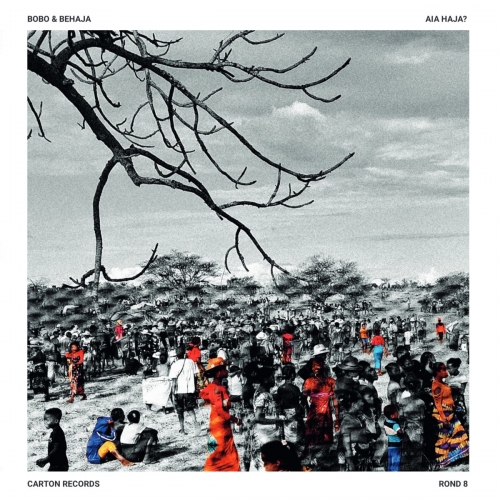
![Manu Delago & Max ZT - Deuce (2026) [Hi-Res] Manu Delago & Max ZT - Deuce (2026) [Hi-Res]](https://img.israbox.com/img/2026-02/19/v5s18xsisjkqnsg5od9qlgck5.jpg)
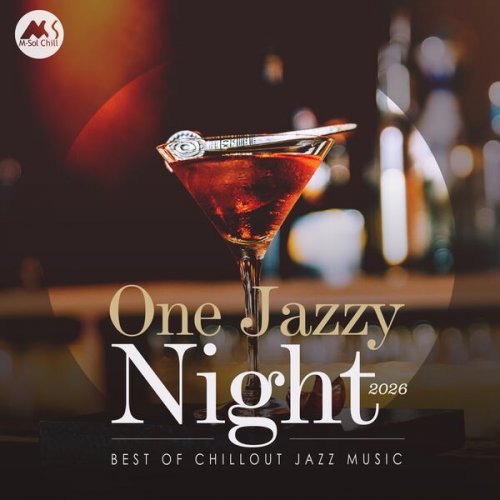
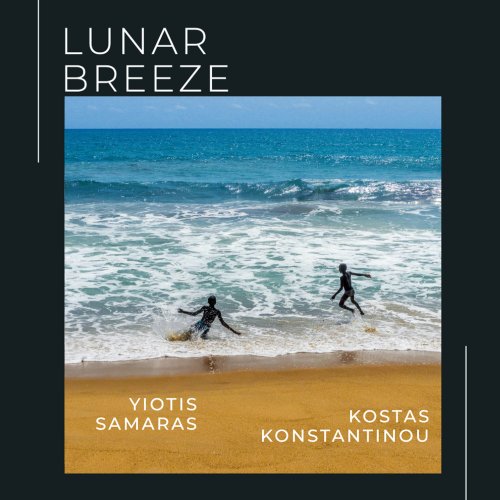
![Hans Backenroth - For Ray, Milt & MJQ (2026) [Hi-Res] Hans Backenroth - For Ray, Milt & MJQ (2026) [Hi-Res]](https://www.dibpic.com/uploads/posts/2026-02/1771506232_lbvu33sttdof0_600.jpg)
![Tom Oren - Dark Lights (2026) [Hi-Res] Tom Oren - Dark Lights (2026) [Hi-Res]](https://www.dibpic.com/uploads/posts/2026-02/1771427884_tdqtmzk78zgcb_600.jpg)
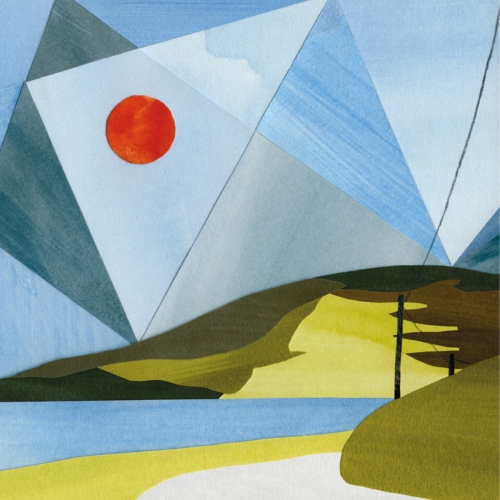
![Ali Shaheed Muhammad, Adrian Younge - Cross: Season 2 (Prime Video Original Series Soundtrack) (2026) [Hi-Res] Ali Shaheed Muhammad, Adrian Younge - Cross: Season 2 (Prime Video Original Series Soundtrack) (2026) [Hi-Res]](https://img.israbox.com/img/2026-02/18/c61izyjkl1wnuz91hzkfnam7x.jpg)
